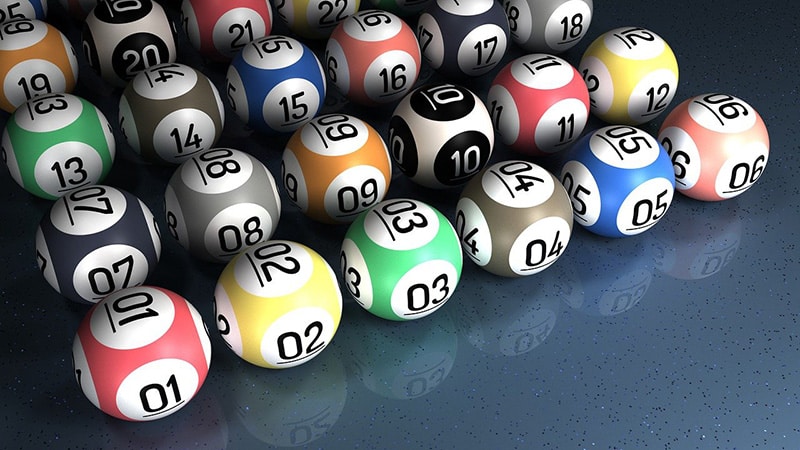
Lottery games have been captivating the hearts and dreams of people for centuries. The excitement of purchasing a ticket, the anticipation of the draw, and the possibility of winning life-changing prizes are all part of the allure. But how exactly does the lottery work? In vauro, we’ll explore the fundamentals of lotteries, from their origins to the odds of winning, and provide valuable insights for those looking to engage in this popular form of gambling.
Introduction
Lotteries have a rich history that can be traced back to ancient civilizations. From China’s Han Dynasty to the Roman Empire, lottery-like games have existed in various forms throughout the ages. Today, they have evolved into highly organized systems with strict regulations and enormous prize pools. Understanding the basics of lotteries can help you navigate this world of chance more effectively.
What is a Lottery?
Definition of Lottery
A lottery is a game of chance that involves the drawing of numbers for a prize. Participants purchase tickets that feature a combination of numbers, hoping that their selection matches the numbers drawn. The winners are determined based on specific criteria, such as matching all the numbers or a subset of the drawn numbers.
Historical Background
Lotteries have a fascinating historical background. They have been used to fund various projects, including the construction of ancient structures like the Great Wall of China and the establishment of universities in Europe. Over time, lotteries have become a popular source of revenue for governments, charitable organizations, and even sports teams.

How Does a Lottery Work?
Understanding the mechanics of a lottery is essential for anyone interested in playing. The process can be broken down into three main stages: ticket sales, number drawing, and prize distribution.
Ticket Sales
Lottery tickets are typically sold through authorized retailers or online platforms. Participants choose their numbers, often within a specified range, and pay for their tickets. Some lotteries allow players to select their own numbers, while others use automated systems to generate random number combinations.
Number Drawing
Once the ticket sales period ends, a drawing takes place to determine the winning numbers. This is usually done through a random selection process, such as using mechanical drawing machines or computerized systems. The drawn numbers are then announced to the public through various channels, such as television broadcasts or online platforms.
Prize Distribution
After the numbers are drawn, the prizes are awarded to the winners based on the specific rules of the lottery. Different combinations of matching numbers yield different prize tiers. Prizes can range from smaller cash amounts to multimillion-dollar jackpots, depending on the lottery and the number of winners.
Types of Lotteries
Lotteries come in various forms, catering to different geographical areas and player preferences. Here are three common types of lotteries:
National Lotteries
National lotteries are organized by governments and are open to participants from an entire country. They often feature significant prize pools and generate substantial revenue that can be used for public initiatives, infrastructure development, or other national projects.
State Lotteries
State lotteries are specific to individual states or regions within a country. They offer localized gaming opportunities and are often designed to support local communities through revenue allocation to education, healthcare, or other state-funded programs.
International Lotteries
International lotteries involve multiple countries collaborating to offer larger prize pools and greater odds of winning. These lotteries allow players from different nations to compete for substantial jackpots that can change lives.

Odds and Probability
Understanding the odds and probability associated with lotteries is crucial for managing expectations and making informed decisions.
Understanding Odds
Lotteries are designed to be difficult to win, and the odds of winning a jackpot can vary significantly. The odds are typically expressed as a ratio, such as 1 in 100 million. It’s important to remember that winning the jackpot is an extraordinary event, and most tickets will not yield a top-tier prize.
Probability of Winning
The probability of winning a lottery depends on various factors, including the number of tickets sold, the number of possible number combinations, and the specific rules of the game. While the odds may be slim, participating in a lottery can still offer a chance to win smaller prizes and enjoy the excitement of the experience.
Strategies and Tips
While lotteries are primarily games of chance, some strategies and tips can help improve your chances of winning smaller prizes. These include purchasing more tickets, joining lottery pools with friends or colleagues, and selecting less popular number combinations to avoid splitting prizes.
Benefits and Risks of Playing the Lottery
Playing the lottery comes with its own set of benefits and risks. It’s important to consider both aspects before engaging in this form of gambling.
Potential Jackpots and Prizes
The allure of lottery games lies in the potential for life-changing jackpots and prizes. Winning a substantial amount of money can offer financial freedom, the ability to fulfill dreams, and help secure the future for oneself and loved ones.
Supporting Good Causes
Many lotteries contribute a portion of their proceeds to support good causes, such as education, healthcare, and environmental initiatives. By participating in the lottery, players indirectly contribute to these noble endeavors.
Responsible Gambling
It’s essential to approach playing the lottery responsibly. Setting a budget for ticket purchases, treating it as entertainment rather than an investment, and avoiding excessive gambling can help ensure a healthy relationship with this form of gaming.
Financial Considerations
While winning the lottery can bring financial rewards, it’s crucial to understand the potential risks and consider the long-term implications. Prudent financial planning, seeking professional advice, and maintaining realistic expectations can help mitigate the financial challenges that may arise from a significant windfall.

Lottery Scams and Fraud
As with any popular activity involving money, lotteries can attract scammers and fraudsters. Being aware of the risks and taking necessary precautions can help protect against falling victim to lottery scams.
Red Flags to Watch Out For
Common red flags of lottery scams include unsolicited communications claiming you’ve won a lottery you never entered, requests for upfront payment or personal information, and high-pressure tactics to claim your supposed prize.
Protecting Yourself
To protect yourself from lottery scams, it’s important to remember that legitimate lotteries will never ask for payment or personal information upfront. Verify the authenticity of any communication independently, report suspicious activities to the appropriate authorities, and refrain from sharing personal details or sending money to unknown individuals or organizations.

Lottery Winners and Their Stories
The stories of lottery winners are often intriguing and inspiring. From humble beginnings to sudden wealth, these individuals have experienced life-altering transformations.
Life-Changing Experiences
Lottery winners often share stories of how their newfound wealth has allowed them to fulfill lifelong dreams, support their families, or contribute to causes close to their hearts. These experiences can serve as a testament to the life-changing potential of winning the lottery.
Handling the Winnings
Managing a significant lottery win comes with its own set of challenges. From financial planning to protecting one’s privacy, lottery winners must navigate a unique set of circumstances. Seeking professional guidance and developing a well-thought-out plan are crucial steps for ensuring the longevity and positive impact of the winnings.
Conclusion
Lotteries offer a thrilling opportunity to dream big and potentially change lives. Understanding the basics of how lotteries work, the different types available, and the odds and risks involved can help individuals make informed decisions when participating in these games of chance. Whether you’re hoping for a life-changing jackpot or simply enjoy the excitement, responsible and knowledgeable engagement with the lottery can enhance the experience.
FAQs
How old do you have to be to play the lottery?
The minimum age requirement to play the lottery varies depending on the jurisdiction. In many countries, the legal age is 18 or 21 years old. It’s important to adhere to the age restrictions set by the lottery authority in your area.
Can I increase my chances of winning?
While it’s not possible to guarantee a win in a game of chance, there are strategies that can improve your odds of winning smaller prizes. These include purchasing multiple tickets, joining lottery pools, and selecting less popular number combinations.
What happens if you lose your winning ticket?
Losing a winning lottery ticket can be a distressing experience. However, without the physical ticket, it becomes challenging to claim your prize. It’s crucial to keep your tickets in a safe place and consider signing the back of them to establish ownership.
How are lottery funds used for good causes?
Lottery funds are often allocated to support various social initiatives, such as education, healthcare, and infrastructure development. Each lottery has its own regulations and guidelines for distributing funds to these causes, ensuring they benefit the community.
Is playing the lottery a good financial decision?
Playing the lottery should be viewed as a form of entertainment rather than a reliable financial strategy. The odds of winning are typically low, and the cost of tickets can accumulate over time. It’s important to set a budget, play responsibly, and understand the potential risks involved.
